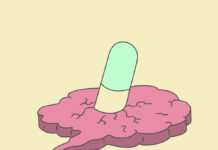From EMPOWER to Exercise: What Actually Helps Older Adults Quit Benzos?
Despite clear risks, benzos and z-drugs remain widely prescribed to the elderly. New research explores what helps—and what doesn’t—when trying to stop.
Antidepressant Use Climbs as Patients Find it Difficult to Discontinue
Findings point to the role of withdrawal symptoms and prescriber practices in long-term antidepressant use.
The Review on Antidepressant Withdrawal That Cochrane Won’t Publish
Peter Gøtzsche and Anders Sørensen on trying to get a review of methods for safe antidepressant withdrawal published in Cochrane: "They sent us on a mission that was impossible to accomplish" to "protect the psychiatric guild."
Components for a Good Neuroleptic Withdrawal Program
The United States desperately needs good programs to help people withdraw from neuroleptic drugs. From all I have seen and heard, there aren’t any - none at least that can reputably claim to get good results on a fairly consistent basis. Again and again I find myself challenged to envision such a program, and in reply to the challenge I have broken down this hypothetical program into various components.
Our Powerful Mind, and Hope
One of the main arguments for continuing drug treatment for depression, psychosis and bipolar disorder is that you will get worse from stopping the drugs, especially if they are stopped abruptly. These are findings from mainstream psychiatry. However, if we combine this information with the methodology of the randomized controlled trial, we may see that these drug trials do not show efficacy of drugs, and may not be usable to show safety. The positive side to this is that the trials may actually demonstrate the healing power of our own minds.
Common Benzodiazepine Sedatives May Induce Aggression
Benzodiazepine medications that are commonly used for calming or sedating people can sometimes apparently cause violent or aggressive responses in some people, according to...
New Study Explores Approaches to Discontinuing Antidepressants
Psychiatrist and psychologist outline pharmacological and psychotherapeutic strategies for discontinuing antidepressants.
ADHD Medication Slows Growth, Increases Obesity
Treating attention deficit/hyperactivity disorder (ADHD) with stimulants affects growth and is likely to cause a higher BMI in later adolescence, according to research from...
2X Risk of Postpartum Hemorrhage Antidepressants
A study of 106,000 pregnant women with a diagnosis of mood or anxiety disorder, by researchers from Harvard, Duke, Michigan State and the university...
A Massachusetts Benzo Bill That Mandates Informed Consent
H. 3594 would require pharmacists to distribute pamphlets containing information on benzodiazepine misuse and abuse, risk of dependency and addiction, handling and addiction treatment resources. This would be a major legislative response to the prescribing patterns for these drugs today.
PTSD and Antidepressants Linked to Diabetes
A JAMA Psychiatry study found links between PTSD, type 2 diabetes, and antidepressants.
Antipsychotics During Pregnancy Linked to Infant Problems
“Live, healthy babies are the most common outcome following the use of antipsychotic medication in pregnancy,” conclude Australian researchers in a study that was...
Researchers Seek Standardized and Safe Antidepressant Tapering Protocol
A new study promotes the use of a standardized approach to antidepressant tapering.
Online Experts on Withdrawal
Online communities are stepping in to help people facing withdrawal effects amass information and receive support for their withdrawal experiences.
Researchers Document Protracted Withdrawal from Antidepressants
Protracted Withdrawal Syndrome characterized by long-term adverse experiences after coming off of antidepressants.
The Real Benzo Hysteria
On June 12th, Psychology Today published an article entitled, "Benzo Hysteria: the Chilling Effects of the 'Addictive' label," by Ed Shorter, PhD. A dangerous and unfounded claim was made in its final paragraph, which reads as follows: "The benzos are among the safest and most effective drug classes in the history of psychopharmacology." Benzodiazepines are in fact highly addictive and many people suffer for years from protracted withdrawal syndromes that are disabling.
Study Examines Experience of Long-Term Antidepressant Use
The use of antidepressants has increased substantially in recent years, yet relatively few studies have asked patients about their experiences with these drugs. A...
Lilly Faces First Week of “Bellwether” Cymbalta Withdrawal Lawsuit
Calling it “Poison,” plaintiff Claudia Herrera testified she would not have taken Eli Lilly's drug Cymbalta had she known the risks. Lilly hid the risks of...
Antidepressant Withdrawal: A Psychiatrist’s 30-Year Challenge to Conventional Wisdom
For thirty years, Dr. Giovanni Fava has sounded the alarm on the long-term effects of antidepressants and the risks of withdrawal, pushing back against pharmaceutical narratives.
Psychiatric Drugs “A Crude Form of Chemical Restraint”
Mental health nursing has a key role to play in helping people discontinue the drugs, writes Timothy Wand.
David Cohen on Madness Radio: The Meaning of Medications
David Cohen's work begins to address a paradox: medication effects are not simply chemical impacts on a biological brain, but rather the complex interactions of social factors, expectation, placebo, "nocebo," and learning. As a harm reduction approach to withdrawal emphasizes, empowerment may be the most important consideration for supporting people's wellness.
What Helps Long-Term Users of Benzodiazepines and Z-Drugs Discontinue?
Current long-term users of benzodiazepines and Z-drugs identify barriers and facilitators for discontinuation.
Cochrane Review Calls for More Research on Antidepressant Withdrawal
Researchers find a lack of current literature on safe, effective ways to manage antidepressant withdrawal and make suggestions for future research.
Keys to Successful Discontinuation of Antipsychotic Medication
Qualitative study finds that both internal resources and systemic factors play a role in antipsychotic discontinuation outcomes.
Strategies for Tapering and Discontinuing Antidepressants
A new review of strategies to support both patients and practitioners through the process of discontinuing antidepressants.
























